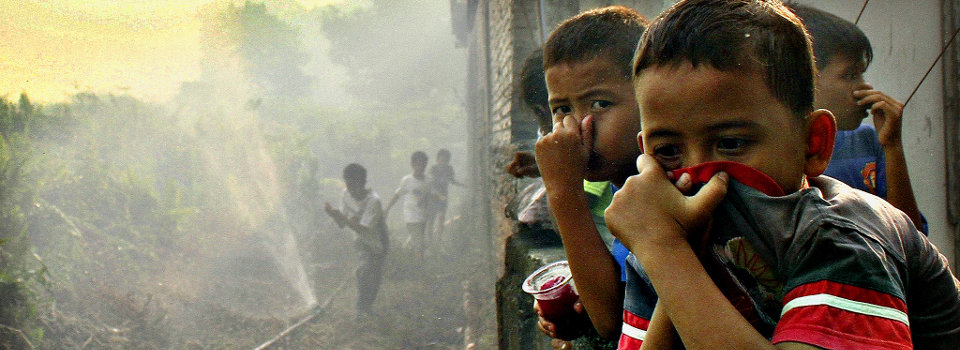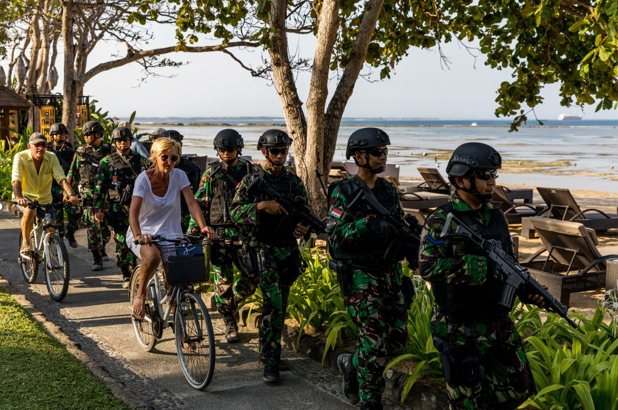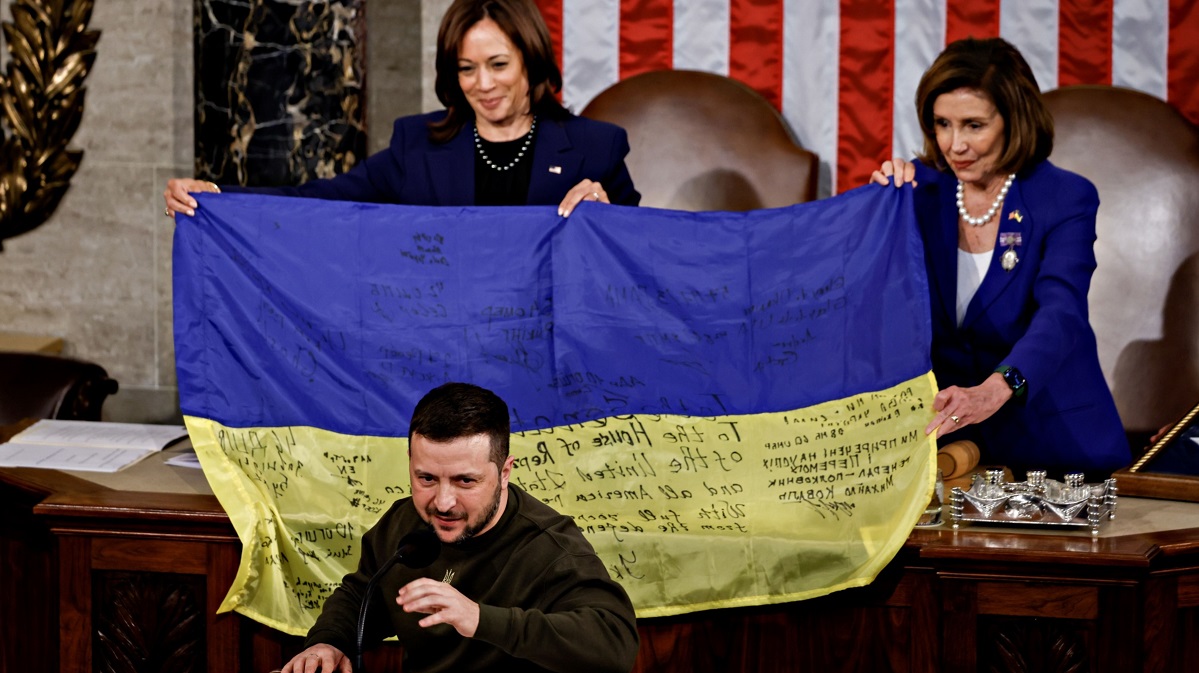Thailand’s general election in May draws political attention to its record as a Southeast Asian success story. It is not up to outsiders to take sides in a foreign election, but the country’s well-wishers would hope that whoever wins would help the Thai nation to continue on the path that has brought it prosperity and stability.
That trajectory has been recognised by the World Bank. “Over the last four decades, Thailand has made remarkable progress in social and economic development, moving from a low-income to an upper middle-income country in less than a generation,” it says. “As such, Thailand has been a widely cited development success story, with sustained strong growth and impressive poverty reduction.”
The evidence? The economy grew at an average annual rate of 7.5% in the boom years of 1960–1996 and 5% during 1999– 2005 following the Asian Financial Crisis. “This growth created millions of jobs that helped pull millions of people out of poverty. Gains along multiple dimensions of welfare have been impressive: more children are getting more years of education, and virtually everyone is now covered by health insurance while other forms of social security have expanded.” The World Bank described the challenges ahead painstakingly, but the bottom line was clear: Today’s Thailand has yesterday’s success to build on.
Thailand has achieved so much because it has struck a balance between its two chief political characteristics: it is a parliamentary democracy and a constitutional monarchy. The revolution of 1932, which ended absolute monarchy, saw sovereign power shifting to the Thai people, with the King’s position as the Head of State placing him above partisan politics and obliging him to discharge his role under the Constitution.
The legacy of history
The world began to change in the worst of ways in the 1930s, but Thailand held on to its political destiny as best as it could. Although Bangkok was neutral during the Second World War, Thailand was overrun by the Japanese invasion that incorporated a hapless nation into Tokyo’s imperial Asian designs. Japan’s defeat gave Thailand breathing space, but not for long.
The Cold War, in which Thailand became an American ally, tested every sinew of its military and social resilience. The Vietnamese invasion of Cambodia and the punitive Chinese invasion of Vietnam created a strategic nightmare for a country that wanted nothing more than to be left at peace, free to pursue the gentle dreams of its beautiful and imaginative people.
Meanwhile, Thailand had become a founding member of the Association of Southeast Asian Nations (Asean), a grouping that afforded it a degree of extra-mural protection in a volatile region that had become a cockpit of great-power rivalry among the United States, the Soviet Union and China.
The end of the Cold War and the expansion of Asean created economic opportunities that Thailand seized even as its democratic institutions matured. Civil society took its place among other state institutions: the monarchy, the legislature, the executive, the judiciary and the military. True, the role of the military in modern Thailand, as in Indonesia and Myanmar, had raised democratic eyebrows, particularly in the West.
However, as the distinguished Harvard political scientist Samuel Huntington argued in his study of political order in developing societies in the 1960s, the “most important distinction between countries concerns not their form of government but their degree of government”. Hence, the “public interest in this sense is not something which exists a priori in natural law or the will of the people. Nor is it simply whatever results from the political process. Rather it is whatever strengthens government institutions. The public interest is the interest of the public institutions.”
In that spirit, the Thai military, like its counterparts elsewhere in Southeast Asia and beyond, provided the institutional stability that is absent in the partisan fray of competitive electoral politics. In any case, it is the military that ultimately fight the wars which decide whether and how long politicians rule democratically. By buffering Thailand from the domestic political upheavals of its neighbours, its military came to be a part of the national political process, not a force alien or inimical to it. Hence its agency in Thai society to this day.
That agency is magnified by the military’s function in ensuring that the monarchy’s role as the ultimate guardian of the nation is not usurped by political populists seeking to exploit the democratic process to achieve partisan and personal ends. It is precisely because the monarchy is above the electoral process that it provides the stability that Thais prize. Anything that undermines the monarchy weakens Thailand. It cannot but be the military’s responsibility to uphold the monarchy’s irreplaceability in the constitutional process, one which ensures that the parliamentary democratic aspect of it functions as well.
A small but profound instance of the symbiosis of constitutional monarchy and parliamentary democracy is the presence of Thailand’s stringent lèse-majesté laws. Some might deem those laws, which protect the institution of the monarchy from insult, as running against the spirit of democracy, but the truth is that they hardly differ in intent from laws that prohibit contempt of court or contempt of Parliament in many republics (that is, non-monarchies). Take away that protective legal layer around institutions, which insulates them from public scorn and disobedience, and the future of nations will be held captive by the worst of demagogues passing off the wares of their vested interests in the name of democracy.
The point, then, is this: Seeking to diminish the role of the monarchy in Thailand is a recipe for disaster. The Thai military is obliged to prevent the nation from sinking into that disaster. Those who do not grasp, or choose not to grasp, these twin truths ignore the visceral realities of Thai political life. Every nation has a political culture born of its history. That culture cannot be transplanted and replicated from abroad.
The way ahead
The political challenge for Thailand today, as it is for many other countries, is to recognise the aspirations of the young in particular. The young have not been tested by history. They have not witnessed the political convulsions of the Cold War past. Their political sense of time is limited by the imperatives of the present, which is contoured by the exigencies of years, not decades. Yet, the young represent the future. They will be critical in deciding what constellation of forces will guide Thailand into that future. While the young are but one among many electoral constituencies, they constitute the political vanguard. Thailand must incorporate the aspirations of its youth into the processes of political evolution for those processes to be sustainable ultimately.
In that forward-looking context, Thailand should continue its admirable record of civilian rule, which allows for different demographic constituencies and interest groups to coexist within a single, peaceful and stable constitutional structure. The monarchy’s prerogatives must remain untouched, the military cannot have its wings clipped, and ruinous street protests must not replace measured debate in Parliament.
However, Parliament must continue to reflect the full spectrum of Thai society, ranging from wealthy, influential and globalised Bangkok elites to the regional peasantry that seeks upward political mobility towards the hallowed precincts of Bangkok. The responsibility to ensure popular representation does not fall on the monarchy, which is above politics, or on the military, which is in a sense beneath politics so that it can uphold the overall constitutional edifice.
That responsibility — of forming a representative legislature — falls on the Thai people themselves. Only they can ensure that Parliament works in the interests of all by electing only the best of contenders, no matter what their partisan affiliations might be. Who is the best? The best consists of those who have a vision of the national future rooted in the present of the past, that is, those with a sense of history unfolding in a country that must embrace the future as one people.
As a fellow-Southeast Asian, it is my hope that the Thai general election will help produce a generation of politicians on whose shoulders older Thais can rest their dreams of a great nation aiming for an even greater place in the region and the world.
The writer is the founder and CEO of Pereira International, a Singapore-based political consultancy




